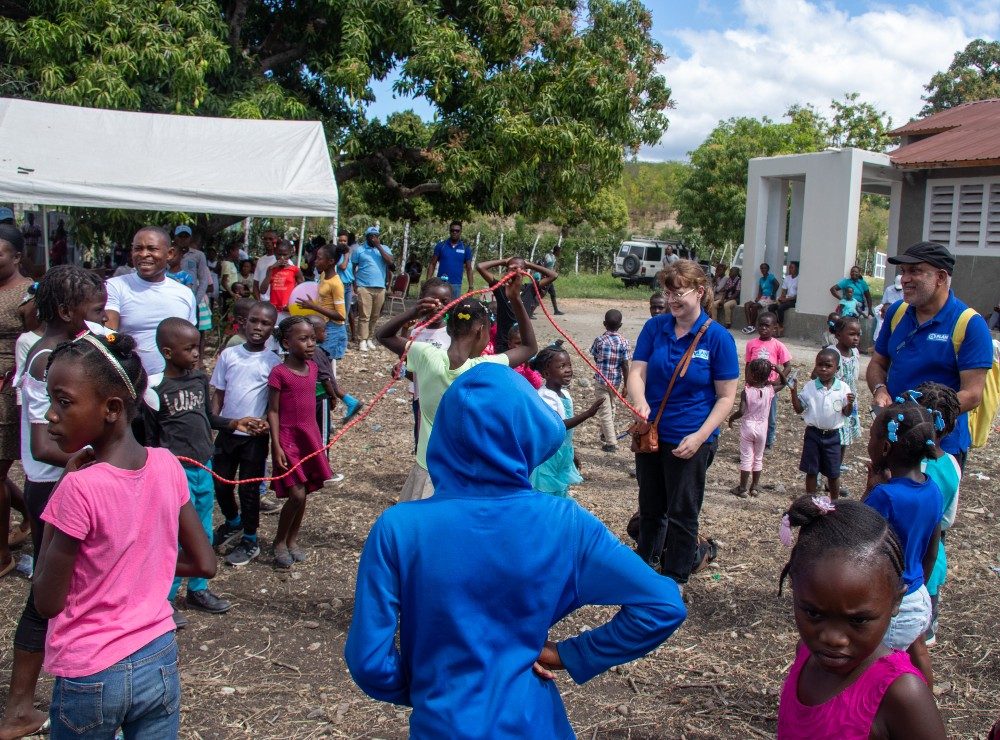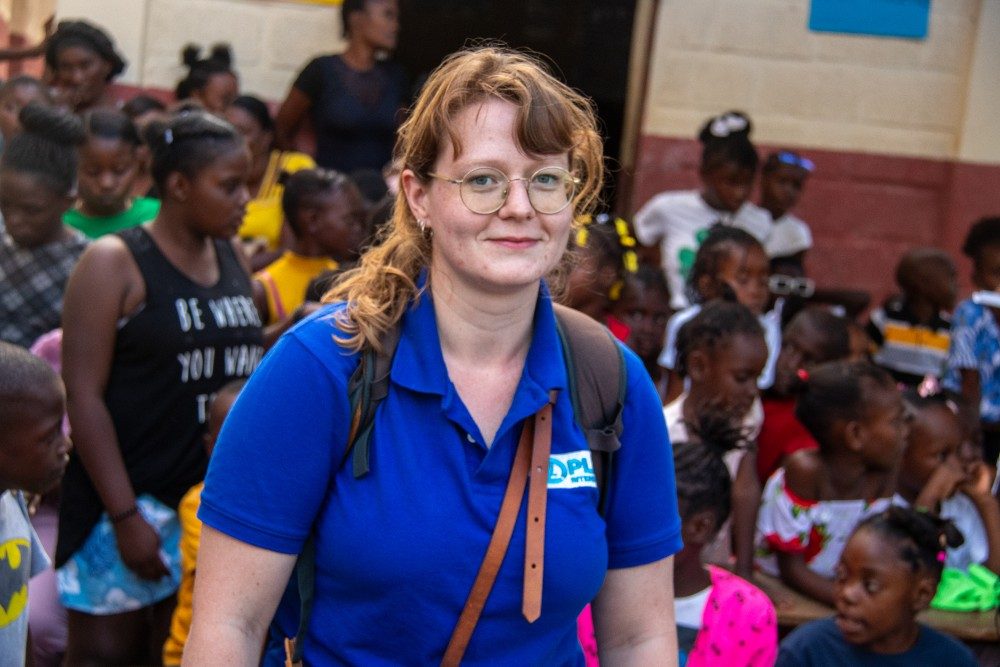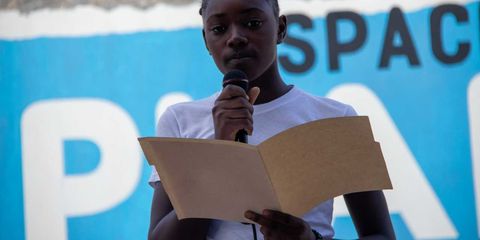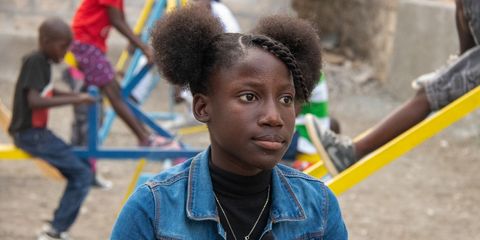Haiti’s children are on the edge and need protection now
15 March 2024With Haiti's children facing severe risks due to the crisis in their country, immediate international support is required, blogs Plan International Haiti's Aurelie Surget.

Aurelie Surget with children in a Plan International-run child-friendly space in Haiti. Photo credit: Plan International.
Haiti’s children are trapped in a cycle of violence, displacement, and hunger. Armed groups are tearing families apart, forcing children to flee their homes and leaving them vulnerable to abuse and exploitation. Schools are closed, and many children are forced to work instead of learning.
Plan International is working tirelessly to protect these vulnerable children. But we need support.
In October 2023, I took the position of Emergency Response Manager at Plan International Haiti. It was a time of transition, as the urgent focus on the global hunger crisis was starting to ease. But the data we saw in meetings and situation reports painted a clear picture: Haiti’s crisis was far from over. The needs are constant and growing, with a focus on protection for children and teenagers, especially concerning gender-based violence.
Complex crisis causing chaos
This isn’t just a hunger crisis, it’s a protection crisis. Everywhere armed groups spread violence, children and teenagers are forced to flee, leaving everything behind. These children become victims of violence, including sexual assault, exploitation and abuse. On top of that, basic services like safe spaces, healthcare, clean water and schools are often unavailable due to damaged infrastructure and overwhelmed public services.
“There’s a strong link between lack of protection and food insecurity, which also impacts access to education.”
Aurelie Surget
The situation is particularly dire in Artibonite, where many internally displaced people have fled from the violence in Port-au-Prince and Lower Artibonite. This is where Plan International Haiti has focused its response.
In December 2023, we conducted a multi-sectoral needs assessment in 3 areas: Gonaives, Gros Morne, and Saint-Michel de l’Attalaye. We spoke with 54 different groups, separated by age and sex, to understand their daily struggles and coping mechanisms.
The assessment confirmed our fears: there’s a strong link between lack of protection and food insecurity, which also impacts access to education. Children of all ages face family separation, sexual violence, early marriage (especially girls) and association with armed groups (mostly boys).
Girls face severe risks
These risks are even greater for girls and teenagers, who are more vulnerable to sexual and gender-based violence due to the food crisis. In all the targeted areas, less than half of school-aged children are enrolled in school, often due to financial constraints and school closures caused by the deteriorating security situation.
The assessment results mirrored what you could see on a simple trip from Gonaives to Gros Morne. In Gonaives, there are hardly any children in uniforms, a clear sign of school closures and low enrollment. You see children working or begging on the streets, living under the constant threat of violence from armed groups. Along the road, you see children alone, walking or riding donkeys to work in the fields or the city. In Gros Morne, communities worry about children being unsupervised, not attending school, and even being abused by relatives. The term ‘children having children’ is used to describe the heartbreaking reality of early pregnancy.
Our support for children

Plan International’s Emergency Response Team is taking action. We work closely with community-based protection committees to identify children in need of assistance and ensure their rights are respected. We also set up child-friendly spaces, where children can play, receive emotional support and just be kids. Seeing these children smile, sing, dance and interact with each other—and the communities coming together to support vulnerable children—is the greatest reward for our work.
We are urgently calling for financial support to continue our vital child protection programmes in Haiti. Without funding by June, our efforts will be crippled.
We plead with the international community to prioritise the needs of Haitian children, especially those displaced by violence or those who have lost family. We also need safe access to deliver aid and call for an immediate cessation of the violence to protect civilians and humanitarian workers.
Emergencies, Child protection in emergencies, Education in emergencies, Food crisis

